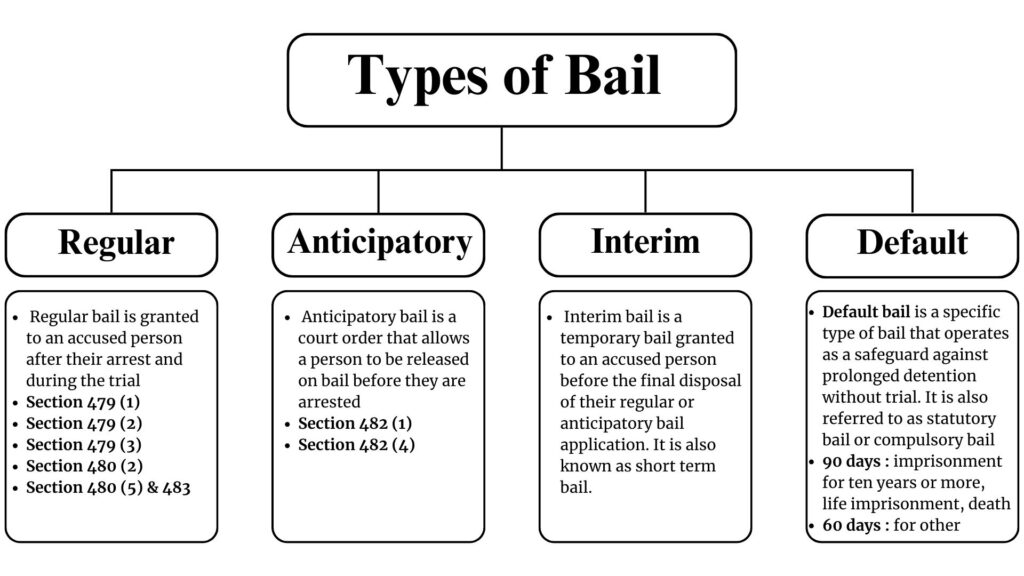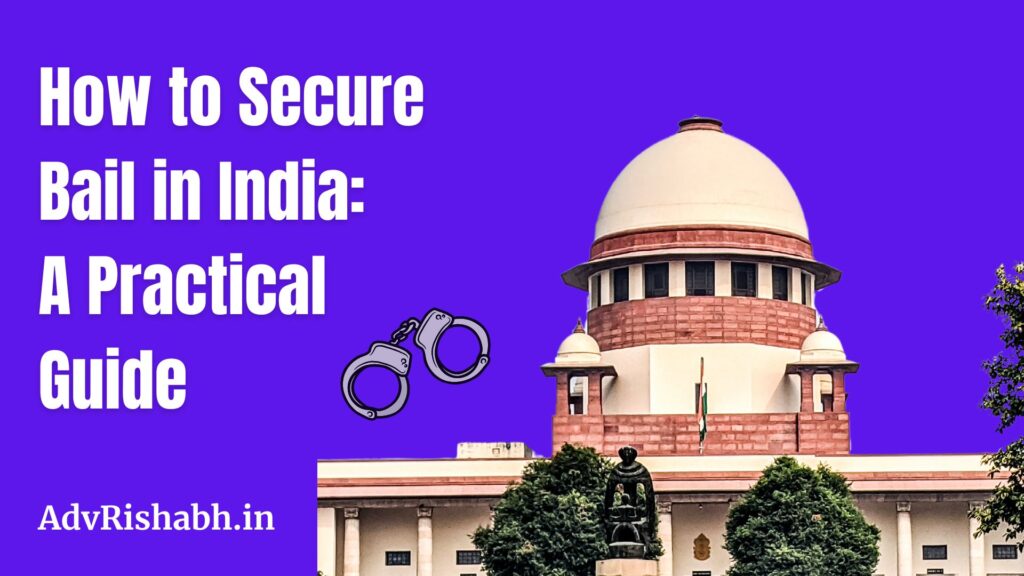Navigating the Indian Bail System
Arrests can happen unexpectedly, leaving individuals in a confusing legal landscape. Thus, understanding the bail process is crucial. In India, the bail system plays a vital role in ensuring that the accused can obtain temporary relief while awaiting trial.
What is Bail?
The meaning of the term ‘Bail’ is to set free a person who is under arrest, detention or under some kind of restraint by taking security for his appearance. In case of Sunil Tulchand Shah vs. Union of India, the Supreme Court held that the bail is a security obtained from a person arrested regarding an offence for the purpose of securing his presence during the course of trial. Though such an accused person is released on bail, still court will have hold on him by way of surety and other conditions set on the bail.
The Reality of Arrest and Bail in India: A Statistical Overview
As of 2022, India reported over 3.5 million arrests annually. A significant percentage involved individuals who were granted bail, highlighting the system’s importance. Many arrested individuals, close to 75%, secure bail before their court dates, demonstrating the effectiveness and accessibility of the bail system when correctly navigated.
When bail can be taken?
The BHARATIYA NAGARIK SURAKSHA SANHITA, 2023 (BNSS 2023) has classified all offences into “bailable” and “non bailable” offences. Section 2(b) of BNSS 2023 defines bailable offices.
“bailable offence” means an offence which is listed as bailable in the First Schedule or which is made bailable by any other law for the time being in force.
On the other hand Non-bailable offence’ means any other offence not listed or made as bailable offenses.
The Sanhita has not provided any criteria to determine whether any particular offence is bailable or non-bailable in the First Schedule. The gravity of the offences, namely, offences punishable with imprisonment for three years or more have been treated as non-bailable offences. But, this is not a hard and fast rule. There are exceptions to the same. However, in case of “bailable offences” granting of bail is mandatory and in case of “non-bailable offences” granting of bail is discretionary.
The Bail Process: A Simplified Explanation
The bail process allows the accused to remain out of jail while facing legal proceedings. When someone is arrested, they may apply for bail, which essentially amounts to a promise to appear in court. If the court grants bail, the accused must adhere to any conditions set forth.
Understanding Different Types of Bail in India
Bail vs. Judicial Remand: Key Differences and Implications
Bail and judicial remand are often confused but are quite different. Bail allows the accused to be free until trial, while judicial remand means being held in custody until further proceedings. Knowing this distinction can help you understand what to expect during the legal process.
Types of Bail Available in India
- Regular Bail: This is applied after arrest when the accused is already in custody.
- Anticipatory Bail: This is sought before arrest, anticipating that the individual may be arrested by police for a crime.
- Interim Bail: This is a temporary form of bail that provides immediate relief until a decision on regular bail is made.
- Default Bail: Default bail, also known as statutory bail, is a right granted to an accused under the Bharatiya Nagarik Suraksha Sanhita (BNSS) when the police fail to file a charge sheet within a specified time.

Choosing the Right Type of Bail: Factors to Consider
Selecting the appropriate bail type depends on various factors, such as the nature of the offense, the timing of the application, and the individual’s previous criminal record. Consulting with a qualified advocate can clarify which type best suits your situation.
The Bail Application Process: Steps and Procedures
Gathering Necessary Documents: A Checklist for a Smooth Process
Collecting the right documents is essential for a seamless bail application. Key items include:
- Arrest warrant (if any)
- FIR (First Information Report)
- Identity proof and residence proof of the accused
- Medical records (if applicable)
Drafting a Compelling Application: Key Elements to Include
You need an advocate to draft a bail application on your behalf. Your bail application must be clear and persuasive. Include:
- Details of the arrest
- Facts supporting the request for bail
- Reasons why you are not a flight risk
- Assurances regarding compliance with court conditions
Presenting Your Application Before the Court
When presenting your case, maintain a respectful demeanor. Clearly articulate reasons for bail, refer to collected evidence, and highlight your willingness to comply with court conditions.
Conditions precedent and considerations for grant of bail
The section lays down three conditions in State of Mysore vs Baswanath Rao that a person must satisfy before the question of granting bail to an accused. They are:
- accused of a bailable offence;
- arrested or detained without warrant by an officer in-charge of a Police Station or appears or is brought before a court and;
- prepared to give bail at any time while in the custody of such officer or at any stage of the proceedings before such court.
Factors Influencing Bail Decisions in India
Before granting bail to an accused person, courts carefully consider various factors. These factors play a crucial role in determining whether bail can be granted or not. Some of factors are listed below.
- The enormity of charge;
- The nature oft he accusation;
- The security of the punishment which the conviction will entail;
- The nature of the evidence in support of the accusation;
- The nature and gravity of the circumstances in which the offence is committed;
- The position and status of the accused with reference to the victim and the witnesses;
- The danger of witness being transferred with;
- The likelihood of accused fleeing from justice;
- Probability of the accused committing more offences;
- The protracted nature of the trial;
- Opportunity to the applicant for preparation of his defence and access to his counsel.
- The health, age and sex of the accused person etc.;
Securing Bail: Practical Tips and Strategies
Finding a Qualified Criminal Lawyer: Essential Qualities to Look For
Identify a lawyer with:
- Experience in handling bail applications
- A good understanding of criminal law
- Strong communication and negotiation skills

